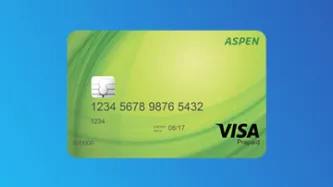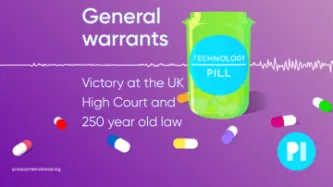Advanced Search
Content Type: Examples
Standard PCR tests are diagnosing huge numbers of people in the US who may be carrying relatively insignificant amounts of virus, and may not be contagious. Rather than skipping testing people without symptoms, as the US CDC has suggested, the solution may be to use less sensitive, though less accurate, rapid tests, which could be performed more frequently and find people when they’re most infectious. However, additional help might lie in including in the results sent to doctors and coronavirus…
Content Type: Examples
Cambridge Assessment, which operates one of the UK’s three big examination boards that administer most GCSE and A-level qualifications, says it approached ministers and the Department of Education two weeks before the publication of both sets of exam results to warn there were major problems in the way grades were being allocated. The exam regulator, Ofqual, responded that its enhanced appeal process would be sufficient to handle the few cases it expected would arise. In the event, serious…
Content Type: Examples
The California bill AB2004 would direct the state to set up a blockchain-based system for immunity passports that would empower the California Department of Consumer Affairs to authorise health care providers to issue verifiable health credentials that could be used to grant or deny access to public places. The bill is scant on detail such as how long a credential should be valid, how it should be updated, or how it can be revoked following exposure. The use of phones for these credentials…
Content Type: Examples
Revenues accruing to the touchless payment company Zwipe more than doubled in the first half of 2020, partly due to reduced operating expenses, and partly due to the pandemic-fueled rise of secure contactless payment technologies.
https://findbiometrics.com/covid-19-game-changer-biometric-payment-cards-zwipe-h1-update-082701/
Writer: Alex Perala
Publication: Find Biometrics
Content Type: Examples
Numerous US colleges are forcing students to download location-tracking apps or wear symptom-tracking devices, many of them similar to tracking systems student athletes are often required to install on their phones. Tracking athletes did little to help them gain either an education or a professional career and backfired when they bypassed the system to reclaim some privacy. Tracking the student body at large is likely to follow suit, with dangerous consequences for public health. In addition,…
Content Type: Examples
After discovering that the online platform for virtual learning Edgenuity uses an algorithm to grade tests comprising short-answer question, students and their parents have learned to game the system by writing extra sentences and adding a list of keywords that the algorithm is likely to be scanning for. Edgenuity offers more than 300 online classes for secondary school students that include instruction videos, virtual assignments - and tests and exams. Others have discovered that simply…
Content Type: Examples
The English regulator, the Care Quality Commission, and its Scottish equivalent, the Care Inspectorate, refused to disclose, in response to FOI requests, the COVID-19 death tolls in individual care homes in part to protect providers’ commercial interest and avoid undermining the UK’s care system, which relies on private operators. The regulators do share data on an individual home basis with their governments. Research has found that coronavirus outbreaks were up to 20 times more likely in…
Content Type: Examples
Students arriving for the fall semester at the University of Arizona were required on arrival to take a rapid COVID-19 test. Those testing negative could proceed to move into their dorms and begin campus life; those testing positive were required to spend ten days in a special isolation dorm and take classes online. The university also set up wastewater sampling to provide an early warning system to detect emerging hot spots. The system enabled the university to detect and isolate two cases…
Content Type: People
Chair Joshua Castellino is Co-Executive Director of Minority Rights Group International & Professor of International & Comparative Law at Derby University, UK. He founded the School of Law, Middlesex University London (2012) and served as Dean until 2018. Joshua worked as a journalist in Mumbai, India, before winning a Chevening Scholarship and completing his PhD (International Law) in 1998. He has published eight books and over a hundred articles on international…
Content Type: Advocacy
Dear Home Secretary,
We are writing to you to demand urgent reform of how asylum seekers across the country are placed under surveillance through the very same device that is supposed to provide basic subsistence support to them.
As you know the Aspen Card is a kind of debit card given to asylum seekers, on which about £39 is credited every week to cover their basic subsistence needs. But, reportedly, the Aspen card is also used to closely monitor asylum seekers and how they spend…
Content Type: Explainer
The UK Home Office provides basic subsistence support to people who are in the process of applying for asylum, as well as to those whose applications have been refused and are appealing their cases, in the form of an ‘Aspen Card’ - basically it’s a debit payment card, which can be used in any shop that accepts VISA debit payments. At the time of writing the programme is managed by corporate giant corporate giant Sodexo, but the administration of the payment system is soon going to go to a new…
Content Type: Video
Performed by an actor, this video is based on the real life testimony, transcribed below, of a UK asylum seeker's experience of using their Home Office issued 'Aspen Card' debit payment card.
I arrived in the UK in 2009 and I have been living here for over ten years now. I have used both the Aspen Card and the card that was issued by the Home Office before that, the Azure Card. When I was released from immigration detention I was destitute because I am not allowed to work and that’s…
Content Type: Video
Performed by an actor, this video is based on the real life testimony, transcribed below, of a UK asylum seeker's experience of using their Home Office issued 'Aspen Card' debit payment card.
I came to the UK from a country in Africa because I was fleeing persecution for religious reasons. When I first came to England I was caught by the police, placed in detention before then being released into a hostel. When I was in the hostel I was given my Aspen Card, while I was applying for…
Content Type: Video
Performed by an actor, this video is based on the real life testimony, transcribed below, of a UK asylum seeker's experience of using their Home Office issued 'Aspen Card' debit payment card.
I came to the UK to claim asylum from a country in the Middle East because of the political situation in my country. In order to get away, I walked from where I live all the way to the Turkish border by foot, crossing the mountains. I stayed in Turkey only a short while and then took two…
Content Type: Video
Links
Learn more about mental health at the Mental Health Foundation's website
Support PI's work
Listen to our first episode with David about tracking on mental health websites
You can listen and subscribe to the podcast where ever you normally find your podcasts:
Spotify
Apple podcasts
Google podcasts
Castbox
Overcast
Pocket Casts
Peertube
Youtube
Stitcher
And more...
Content Type: Video
On 6 February 2021, the Constitutional Court of South Africa in a historic judgment declared unconstitutional years of secret and unchecked surveillance by South African authorities against millions of people - irrespective of whether they reside in South Africa.
The Court powerfully placed the judgment in historical context:
The constitutionally protected right to privacy seeks to be one of the guarantees that South Africa will not again act like the police state that it was under apartheid…
Content Type: Long Read
In May 2019, the UK Department for Work and Pensions (DWP) – the department in charge of welfare – published their two-part staff guide on conducting fraud investigations. Privacy International went through the 995 pages to understand how those investigations happen and how the DWP is surveilling benefits claimants suspected of fraud.
Anyone who has flipped through a tabloid will have seen articles exposing the so-called “benefits-cheats,” people who allegedly trick the benefits systems for…
Content Type: Long Read
Back in 2019, we read through a 1000-page manual released by the UK Department for Work and Pensions (DWP) describing how they conduct investigations into alleged benefits fraud. While out in the open and accessible to anyone, the guide turned out to be a dizzying dive into a world where civil servants are asked to stand outside someone’s door to decide if they are indeed single or disabled and have to be reminded that living together as a married couple is not an offense. The guide – which…
Content Type: News & Analysis
Earlier this week, the UK Government announced that no immigration status checks will be carried out for migrants trying to register with their GP and get vaccinated. But temporary offers of safety are not enough to undo the decades of harm caused by policies that have embedded immigration controls into public services.
Years of charging migrants for healthcare and sharing patient data with the Home Office has eroded trust between migrant communities and the NHS. As a result, they might not…
Content Type: Video
Links
Find out more about general warrants and out case
Listen to our last podcast with Caroline - about a ruling in the European Union's top court that UK, French and Belgian mass surveillance regimes must respect privacy: Judgement Day
And make sure we can keep taking these fights to court: support.privacyinternational.org
You can listen and subscribe to the podcast where ever you normally find your podcasts:
Spotify
Apple podcasts
Google podcasts
Castbox
Overcast
Pocket Casts…
Content Type: Long Read
What’s the ruling all about?The Constitutional Court of South Africa in a historic judgment declared that bulk interception by the South African National Communications Centre is unlawful and invalid. Furthermore, the Constitutional Court found that the Regulation of Interception of Communications and Provision of Communication-Related Information Act (RICA) 1) was deficient in failing to provide at least a post-notification procedure for subjects of interception; 2) failed to ensure the…
Content Type: News & Analysis
Today, the Constitutional Court of South Africa in a historic judgment declared that bulk interception by the South African National Communications Centre is unlawful and invalid.
The judgment is a confirmation of the High Court of South Africa in Pretoria’s powerful rejection of years of secret and unchecked surveillance by South African authorities against millions of people - irrespective of whether they reside in South Africa.
The case was brought by two applicants, the amaBhungane Centre…
Content Type: Advocacy
Esta carta también está disponible en inglés.
Estimados Sres. Zuckerberg y Pichai,
En los últimos años, ustedes han sido pioneros en la creación de importantes herramientas de transparencia para ayudar a los usuarios de su plataforma a entender, conocer y contextualizar la propaganda electoral a las cuales se ven expuestos. Estamos de acuerdo en que los procesos de verificación de anunciantes y los repositorios de anuncios son salvaguardas claves contra la manipulación y la desinformación en…
Content Type: Advocacy
This letter is also available in Spanish.
Dear Mr. Zuckerberg and Mr. Pichai,
In the past few years, you have pioneered important transparency tools to help your platform users understand, learn about and contextualise the political advertising they see. We agree that advertiser verification processes and ad repositories are key safeguards against online manipulation and misinformation. However, we are saddened to observe that these benefits have not been equally distributed among your global…
Content Type: Examples
The government has revealed that illegal immigrants will also benefit from the rollout of the Covid-19 vaccine.
National Treasury director-general Dondo Mogajane said this during a virtual meeting between his department and the SA National Editors Forum on Wednesday afternoon.
“We are in SA and we have many millions of undocumented people and [we can't say they shouldn't receive the vaccine as they are undocumented]. The demand for the vaccine is going to be exceeded, and we are not going to…
Content Type: Case Study
Your phone is the ideal profit tool for data brokers and advertisers: it's always in your pocket and can be used both as a means of collecting information and serving you ads based on that information. But how does this data collection happen through your apps?
Most, if not all, apps on our phones use Software Development Kits (SDKs). SDKs themselves are not trackers, but they are the means through which most tracking through mobile apps occurs. These kits are provided by third parties and…
Content Type: Case Study
Behind their tecchie names, AddThis and ShareThis are simple services: they allow web-developers and less tech-savvy users to integrate social networking "share" buttons on their site. While they might also offer some additional services such as analytics, these tools gained traction mostly by providing an easy and free way to integrate Facebook, Twitter and other social networks share buttons. Anyone can use any of these service and in a few clicks be provided with a plugin for their site or a…
Content Type: Long Read
Now more than ever with a global pandemic happening, our lives are being shaped by our interaction with the digital world. Work meetings on Zoom followed by Skype with family before a quick run with your favourite running app and a Google search for your next meal: technologies and services offer us a lot and greatly improve our daily lives. But what's the real cost of these tools we rely on so much?
A lot of these companies, especially those offering free services, collect data about you. It…
Content Type: Report
Privacy International has released a report summarising the result of its research into the databases and surveillance tools used by authorities across the UK’s borders, immigration, and citizenship system.
The report uses procurement, contractual, and other open-source data and aims to inform the work of civil society organisations and increase understanding of a vast yet highly opaque system upon which millions of people rely.
It also describes and maps…

















